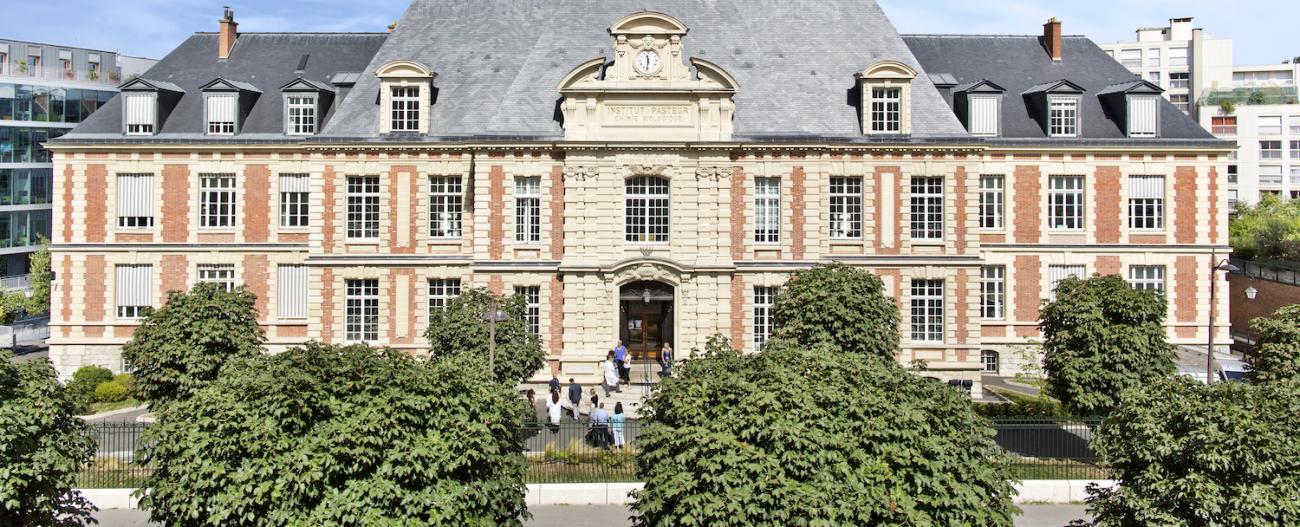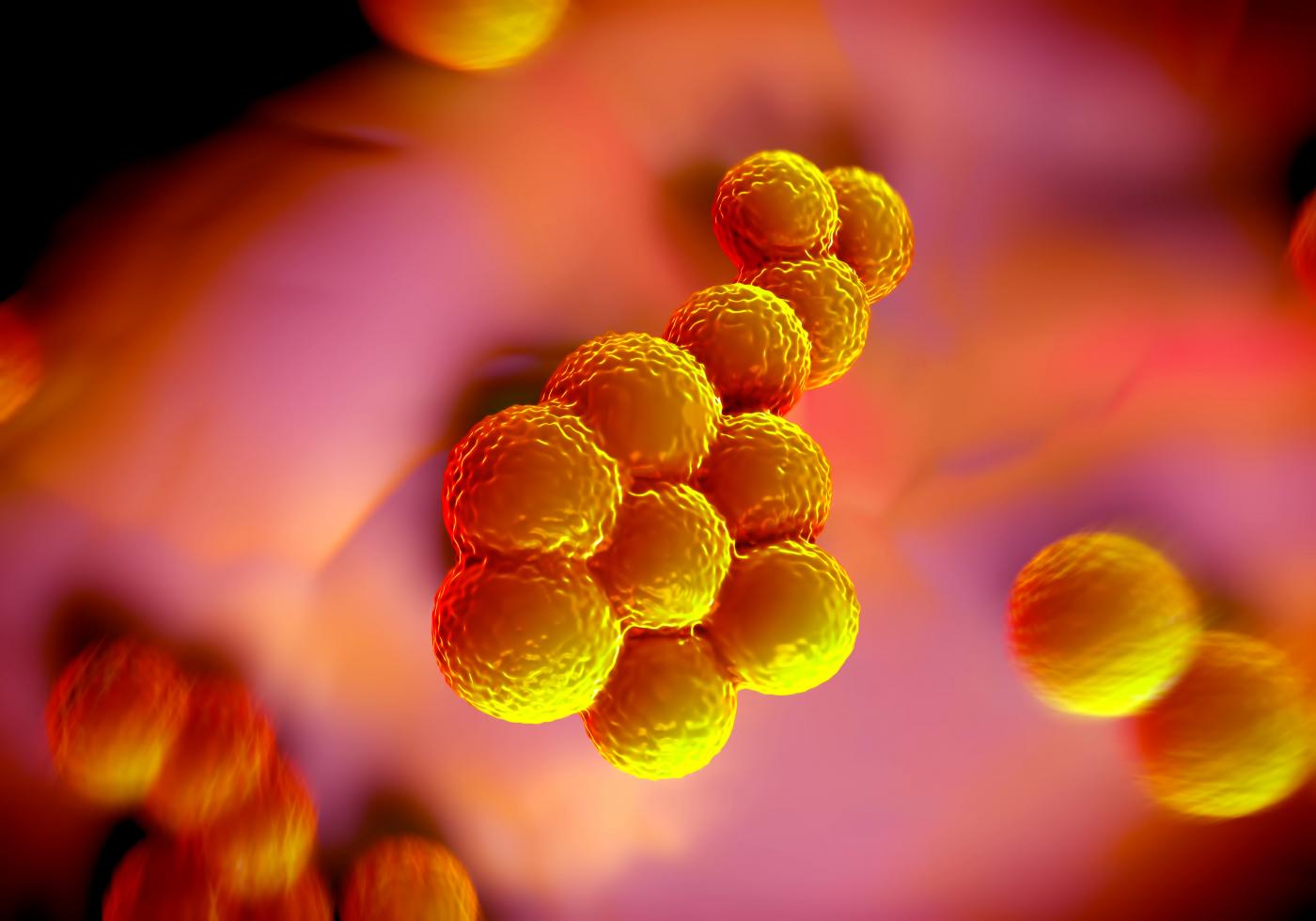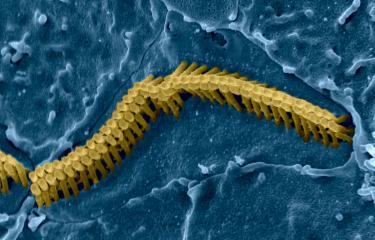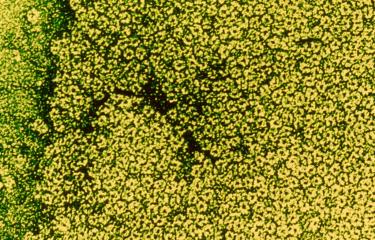On November 14, 1888 – exactly 130 years ago –, the Institut Pasteur was officially opened at a ceremony attended by French President Sadi Carnot and many other prestigious guests. The Institut Pasteur's history is marked by countless scientific discoveries – ten of its scientists were awarded the Nobel Prize in Medicine for their work, as you will find out in the following paragraphs. Drawing on its history and on the universal humanist values handed down to it by Louis Pasteur himself, the Institut Pasteur is now internationally recognized as a leading biomedical research center – one that embraces modern technology, with sophisticated high-tech platforms hosting some 1,500 scientists from all over the world, and undoubtedly stands at the forefront of research to improve human health.
Firmly rooted in its long and proud tradition of research, the Institut Pasteur remains committed to tackling current and future health challenges by improving our understanding of the living world and developing new diagnostic, therapeutic and preventive tools, in fields ranging from vaccination to immunotherapy. The Institut Pasteur is constantly reassessing its priorities, in a changing health environment characterized by the regular emergence of new infections, increasing resistance to anti-infective agents, environmental phenomena with a major impact on health – such as global warming –, globalization and the many consequences of an aging population, especially the growing incidence of neurodegenerative diseases and cancer.
Would Louis Pasteur recognize his scientific legacy in today's Institut Pasteur? Without a doubt, since this legacy – which can be summed up by a single principle, that of transcending borders – has been followed to the letter.
- Transcending scientific borders. Pasteur certainly transcended the borders of (bio)chemistry, microbiology and medicine, and his "disciples" soon followed in his footsteps for the fields of therapeutic chemistry and immunology. The Institut Pasteur remains a shining example of multidisciplinarity, and new fields such as human genetics, neuroscience, and developmental and stem cell biology have now been added to the list of "historical" disciplines.
- Transcending geographical borders. Louis Pasteur sent his disciples to all corners of the world to set up centers of expertise that would help local populations, frequently disadvantaged and depleted by disease outbreaks. The centers soon became the cornerstone of an ambitious policy for outbreak surveillance and control. These challenges have not gone away, and the Institut Pasteur International Network, with 33 institutes in 26 countries on every continent, is on the front line in tackling them. The International Network also represents an important asset for the Institut Pasteur, providing it with a global platform to tackle the pressing issues in health research.
Let's continue defending research!
130 years ago, the Institut Pasteur was at the forefront of research to tackle threats to human health – and the same is true today, as the world grapples with infectious diseases such as Zika and Ebola, AIDS, antimicrobial resistance, and also Alzheimer's, Parkinson's and cancer. Ever since its early days, the Institut Pasteur has pushed back the boundaries of science and medicine, pursuing its research with tireless determination. In the interest of human progress and our shared future, let's stand together to defend research!
- 1888
November 14. Opening of the Institut Pasteur in Paris.
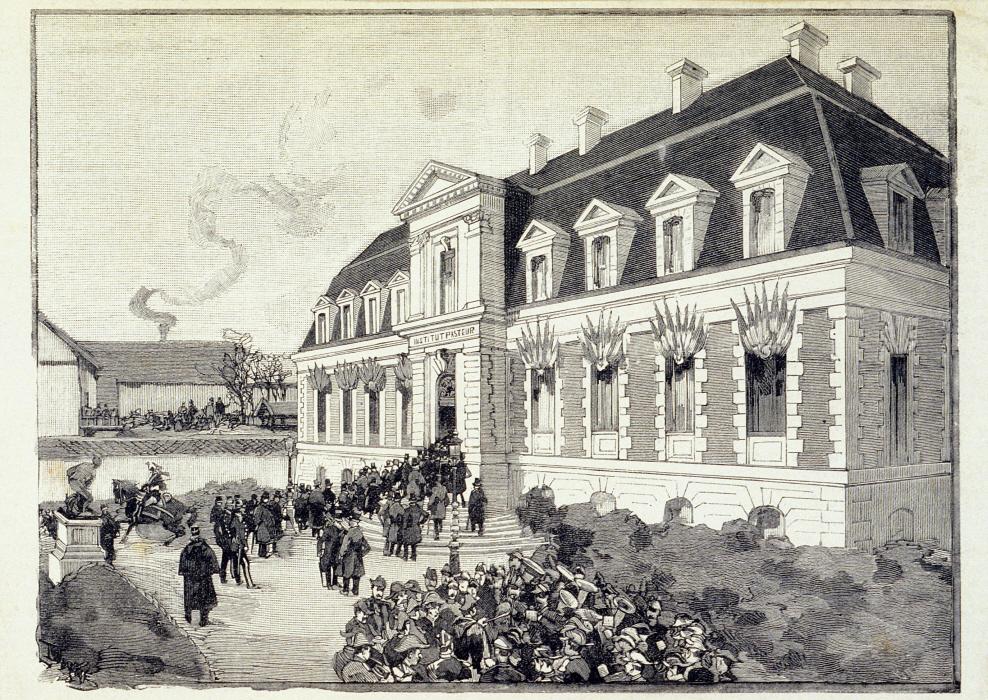
- 1888
Identification of the mechanism of action of the diphtheria toxin. - 1894
Identification of the bacterium responsible for plague (Yersinia pestis).
TODAY. Plague has not yet been eradicated. The Institut Pasteur was on the front line in tackling an outbreak in Madagascar in 2017.
- 1898
Discovery of the role of fleas in the transmission of plague.
"Chance favors the prepared mind."*
Louis Pasteur. Œuvres de Pasteur, Vol VII, p. 215.
*Complete quotation: "Chance favors invention only for minds prepared for discoveries by patient study and persevering efforts."

- 1906
Identification of the bacterium responsible for whooping cough (Bordetella pertussis).
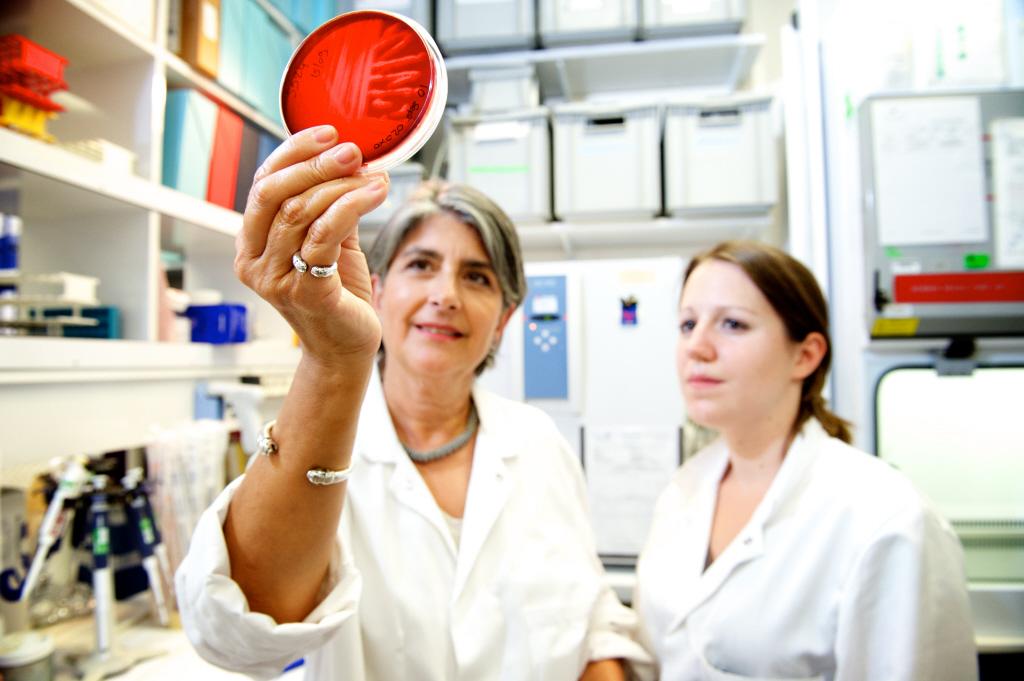
- 1909
Discovery of the role of lice in the transmission of typhus.
- 1917
Discovery of bacteriophages.
AUJOURD’HUI. TODAY. Bacteriophages (page in French), or "bacterial viruses", appear to represent a possible alternative to antibiotics. An Institut Pasteur team is currently working on the development of "phage therapy" to treat some bacterial infections.
- 1921
Development of the Bacillus Calmette–Guérin vaccine (BCG) against tuberculosis.
TODAY. Although the BCG helps prevents severe forms of tuberculosis, it is not effective in combating transmission. At the Institut Pasteur, scientists are looking to improve the vaccine strain to develop a "super BCG".
- 1936
Discovery of the anti-infectious action of sulfonamides.
TODAY. The Institut Pasteur is closely involved in efforts to tackle antibiotic resistance and is working to develop new antibiotics such as eligobiotics.
- 1954
Development of a polio vaccine.
- 1970
Discovery of the first neurotransmitter receptor.
TODAY. Research into this receptor has provided a potential avenue for the development of therapies for Alzheimer's.
- 1977-1980
Discovery of multiple human papillomaviruses (HPV), identification of specific pathogenicity and the role of one HPV in human cancer.
TODAY. A program is currently under way at the Institut Pasteur to monitor young women vaccinated against papillomaviruses responsible for cervical cancer.
TODAY. Research in recent years on patients known as "HIV controllers" is raising hopes for new AIDS treatments.
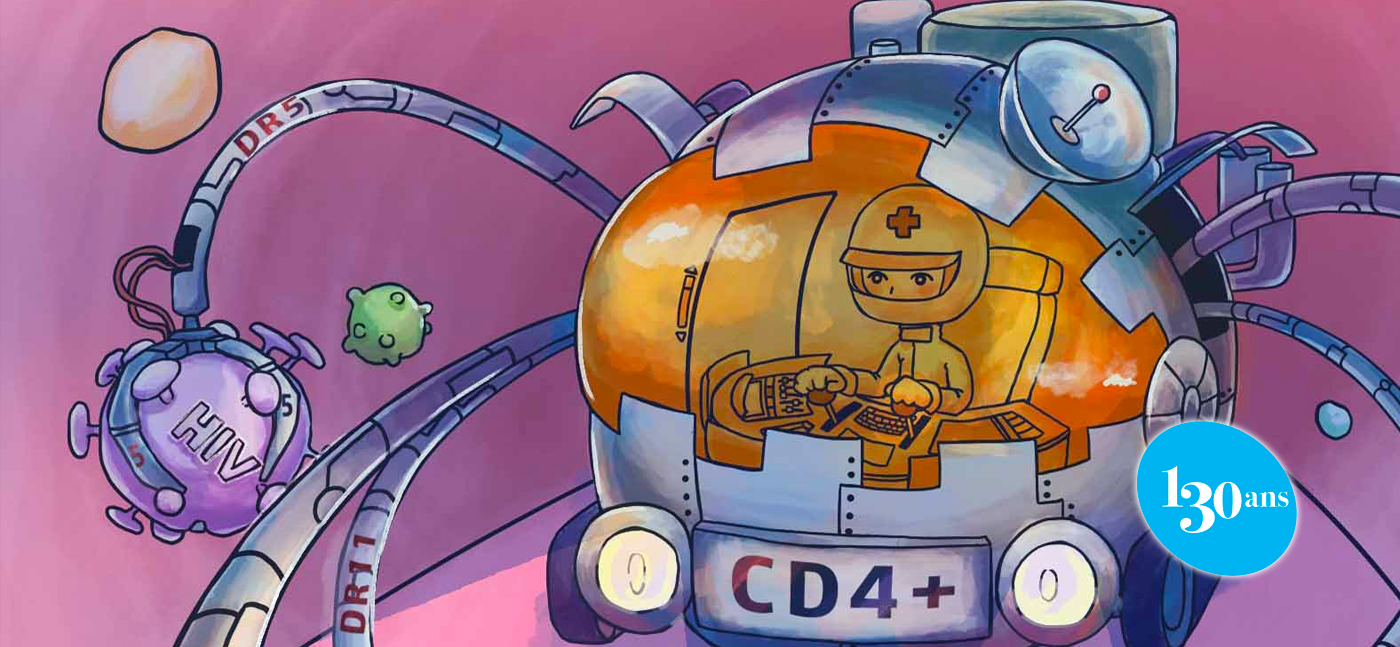
"Never advance anything which cannot be proved in a simple and decisive fashion. Adopt a critical mind. Without it, everything is useless. It always has the last word."
Louis Pasteur

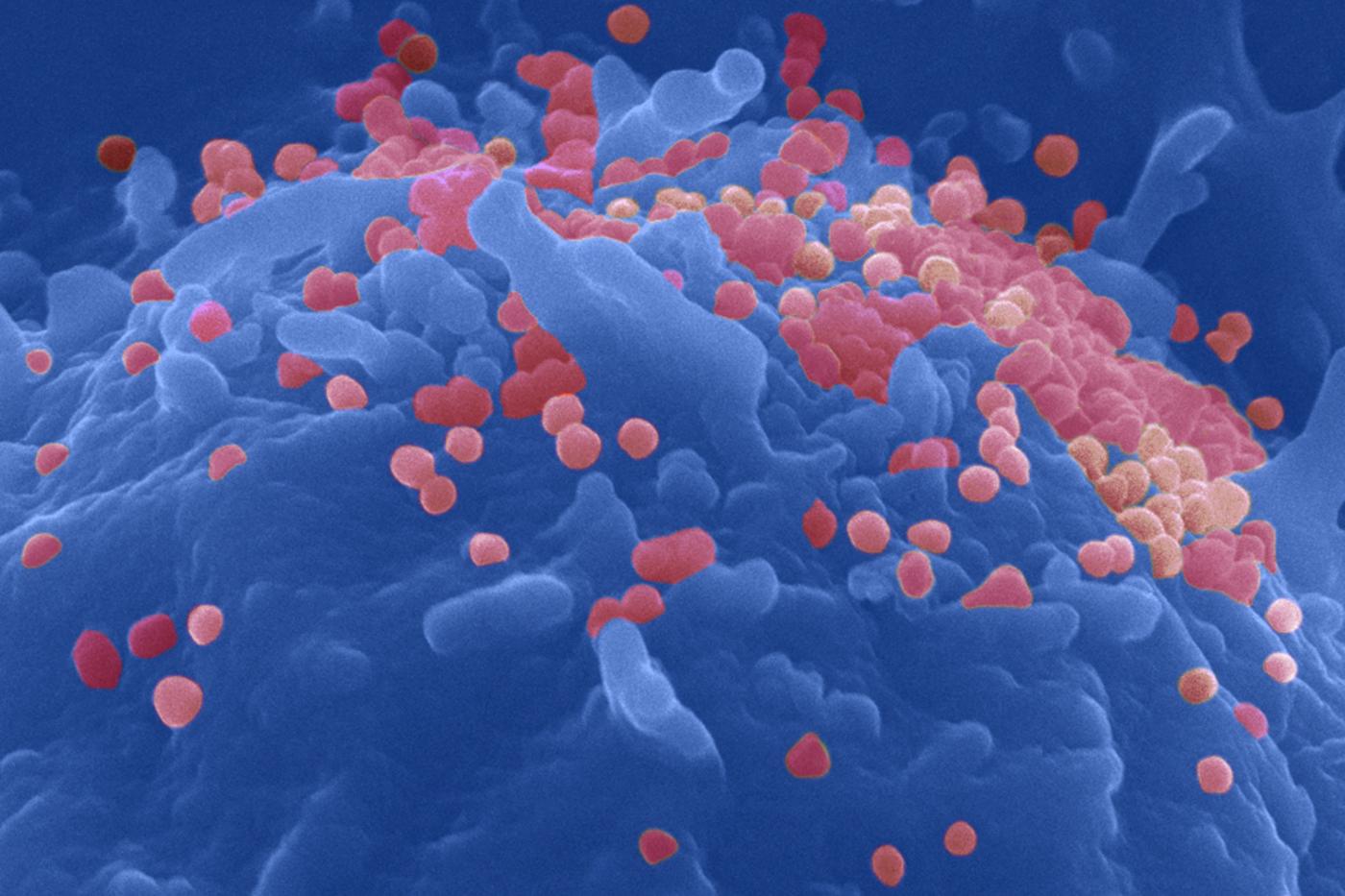
Coloured scanning electron micrograph (SEM) of HIV virus particles at the surface of a lymphocyte T CD4. Copyright: Institut Pasteur/Marie-Christine Prévost, Nathalie Sol-Foulon et Olivier Schwartz. Colorisation Jean-Marc Panaud.
- 1985
Development of a genetically engineered preventive hepatitis B vaccine.
TODAY. An Institut Pasteur team is currently working on the development of a therapeutic vaccine for chronic carriers of the virus (that affects 350 million people worldwide).
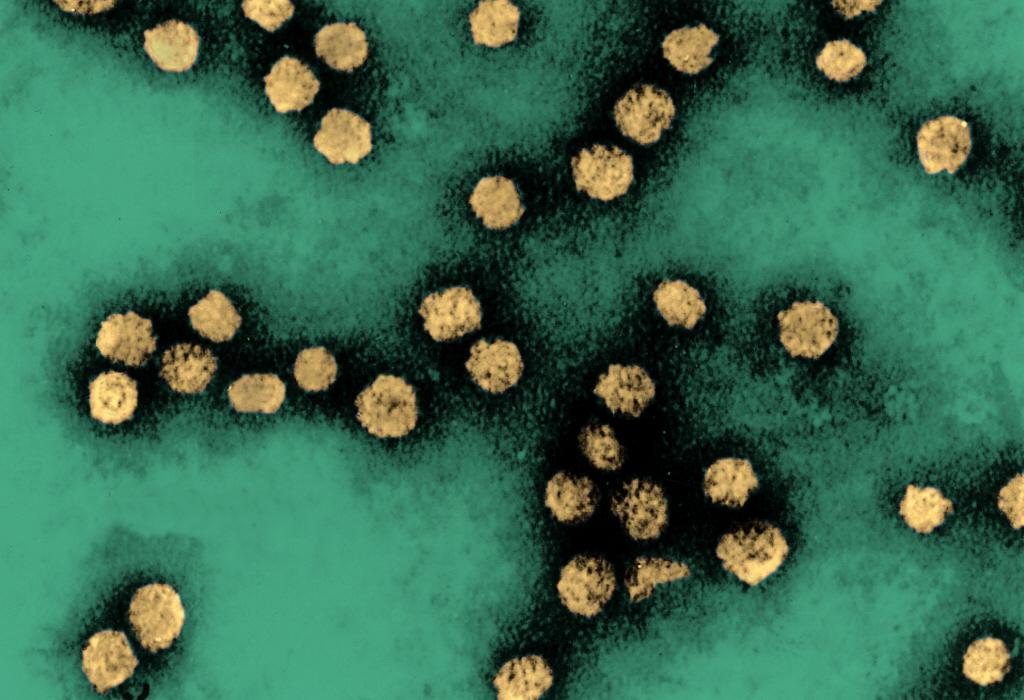
HB particles, the basis of the preventive vaccine against hepatitis B. © Institut Pasteur
- 1988-1992
Cloning of several key Helicobacter pylori genes leads to the development of a rapid diagnostic test for these bacteria that can increase risk for stomach ulcers or cancer.
TODAY. Scientists today are investigating biomarkers of infection to enable early detection of stomach cancer.
- 1991
Development of a first vaccine candidate for bacillary dysentery.
TODAY. The Institut Pasteur is currently carrying out clinical trials in humans for a new vaccine candidate
to treat this infection.
- 1995
Identification of the first deafness genes in humans.
TODAY. Around a hundred genes associated with deafness are now known. Our teams are researching the mechanisms involved in hearing and deafness, as well as the impact of noise pollution.

- 1996
Full sequencing of the Saccharomyces cerevisiae yeast genome.
- 1997
Full sequencing of the Bacillus subtilis genome.
- 1998
Full sequencing of the Mycobacterium tuberculosis genome.
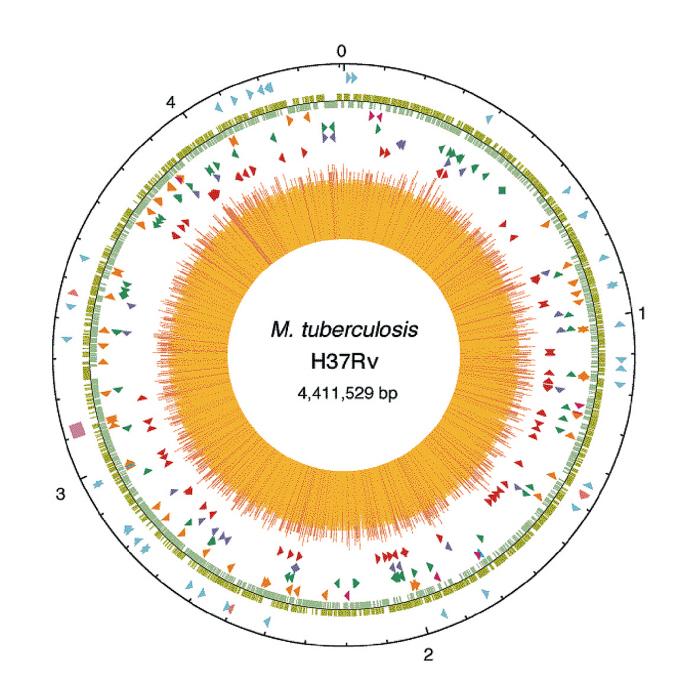
Map of the chromosome of Mycobacterium tuberculosis. © Institut Pasteur/Roland Brosch
- 1999-2002
First identification of genes predisposing to infection by papillomavirus in humans.
- 2000
Identification of a mechanism for genetic variation in Plasmodium, the malaria parasite.
TODAY. Several Institut Pasteur research units are currently involved in malaria research, from efforts to find a vaccine to investigation of the alarming resistance of parasites to antimalarial drugs.
- 2001-2002
Comparative genomics of Listeria monocytogenes and Mycobacterium leprae.
TODAY. An "Omics" Center was opened at the Institut Pasteur in 2018 to help strengthen its capabilities
in microbial and human genomics.
- 2003
Identification of the first genes associated with autism.
TODAY. More than 200 genes associated with autism (page in French) have since been identified. An Institut Pasteur team is focusing its research on
the role of these genes with a view to developing new therapies.
"Knowledge is the heritage of humanity."
Louis Pasteur
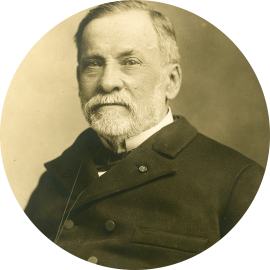
- 2004-2012
Identification and regulation of stem cells and muscle progenitor cells during development and regeneration. Find out about the history of stem cell research at the Institut Pasteur.
TODAY. Since 2012, the Institut Pasteur has been coordinating an extensive research network on stem cells and regenerative medicine known as REVIVE.
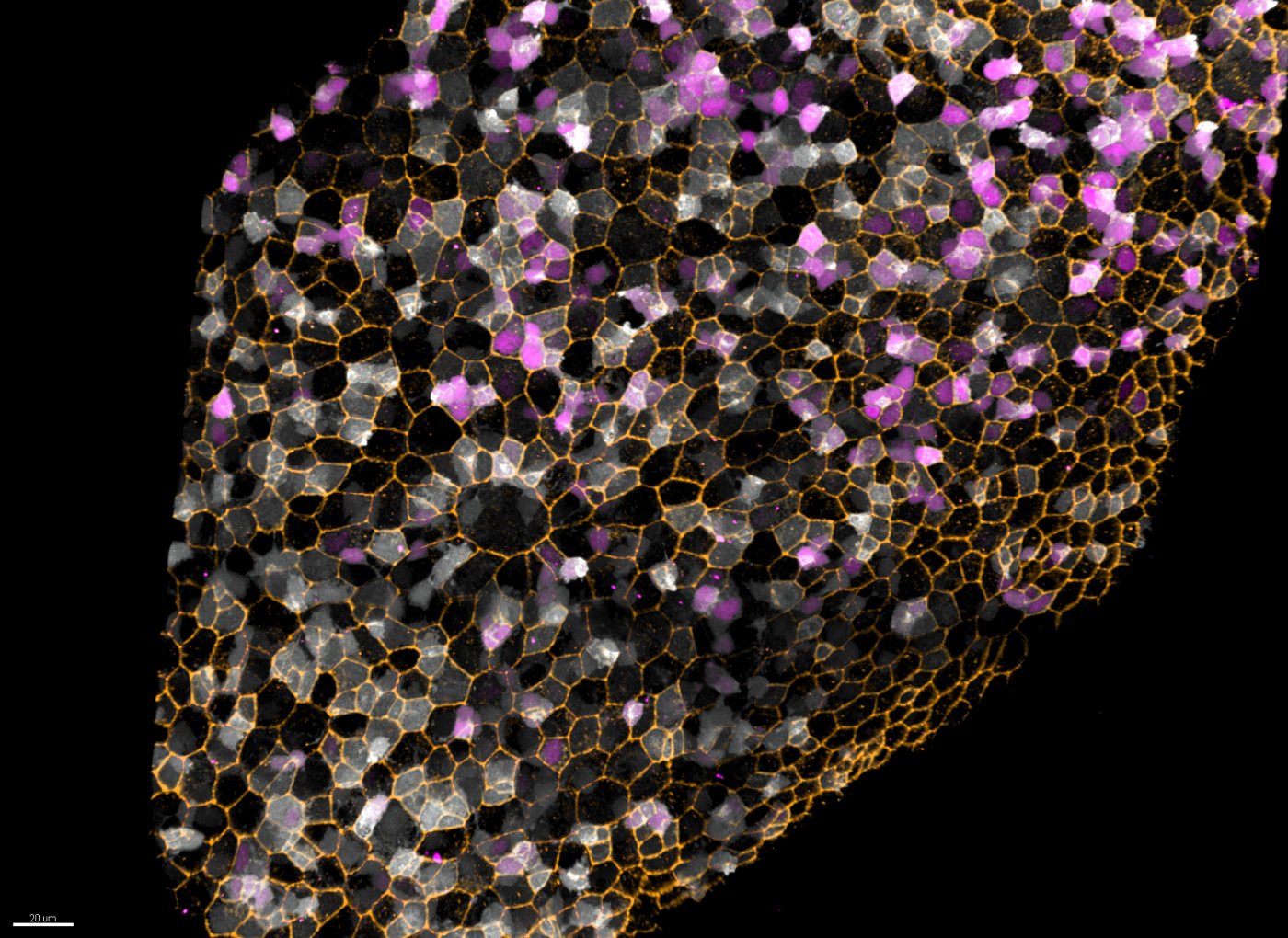
Layer of neural stem cells lining the cerebral ventricle of an adult zebrafish (Danio rerio). © Institut Pasteur/Nicolas Dray et Laure Mancin
- 2006
Identification of the source of the Indian Ocean chikungunya outbreak by sequencing the genome of viral strains.
- 2008
Discovery of a new source of neuron production in the adult brain.
TODAY. Neurogenesis is being investigated in pathological situations such as depression and neurodegenerative diseases.
- 2012
Demonstration that stem cells survive 17 days post mortem.
- 2014
The Institut Pasteur deploys teams to tackle the Ebola outbreak in West Africa. Read the full report on the Institut Pasteur's involvement.
TODAY. In 2015, an Institut Pasteur was set up in the Republic of Guinea, following the outbreak, with the aim of strengthening
the response to emerging diseases in this region of the world.

- 2016
A link between Zika and microcephaly is discovered, with a high risk in the first trimester of pregnancy.
Launch of a clinical trial of a therapeutic vaccine candidate for cancer.
TODAY. 34 teams at the Institut Pasteur, a member of Cancéropôle Île-de-France, are currently carrying out research on cancer.
- 2017
Encouraging results for a gene therapy to treat a neurodegenerative childhood disorder.
- 2018
A clinical trial is launched for a pain-relieving molecule discovered at the Institut Pasteur.
10 Nobel Prizes since 1907
- 1907. Nobel Prize in Medicine awarded to Alphonse Laveran for his work on the role played by protozoa in causing diseases. He discovered the malaria parasite, Plasmodium
- 1908. Nobel Prize in Medicine awarded to Ilya Mechnikov for his work on immunity
- 1919. Nobel Prize in Medicine awarded to Jules Bordet for his discoveries relating to immunity
- 1957. Nobel Prize in Medicine awarded to Daniel Bovet for his pioneering work in therapeutic chemistry
- 1928. Nobel Prize in Medicine awarded to Charles Nicolle for his work on typhus
- 1965. Nobel Prize in Medicine awarded to François Jacob, André Lwoff and Jacques Monod for their discoveries concerning genetic control of enzyme and virus synthesis
- 2008. Nobel Prize in Medicine awarded to Françoise Barré-Sinoussi and Luc Montagnier for their discovery of human immunodeficiency virus (HIV)



